
The Moody Blues were an English rock band formed in Birmingham in 1964. The band initially consisted of Graeme Edge (drums), Denny Laine (guitar/vocals), Mike Pinder (keyboards/vocals), Ray Thomas (multi-instrumentalist/vocals), and Clint Warwick (bass/vocals). Originally part of the British beat and R&B scene of the early–mid 1960s, the band came to prominence with the UK No. 1 and US Top 10 single "Go Now" in late 1964/early 1965. Laine and Warwick both left the band in 1966, with Edge, Pinder and Thomas recruiting new members Justin Hayward (guitar/vocals) and John Lodge (bass/vocals). They embraced the psychedelic rock movement of the late 1960s, with their second album, 1967's Days of Future Passed, being a fusion of rock with classical music that established the band as pioneers in the development of art rock and progressive rock. It has been described as a "landmark" and "one of the first successful concept albums".

On the Threshold of a Dream is the fourth album by the Moody Blues, released in April 1969 on the Deram label. The album reached the top of the album charts, the group's first No. 1 album in the UK. According to guitarist Justin Hayward, "I think Threshold is the defining album for the Moody Blues. And it's the one in the '60's that you would find in people's homes when you went, they would have that album."

David Justin Hayward is an English musician. He was the guitarist and frontman of the rock band the Moody Blues from 1966 until that group's dissolution in 2018. He became the group's principal vocalist and its most prolific songwriter over the 1967–1974 period, and composed several international hit singles for the band.

To Our Children's Children's Children is the fifth album by the Moody Blues, released in November 1969.
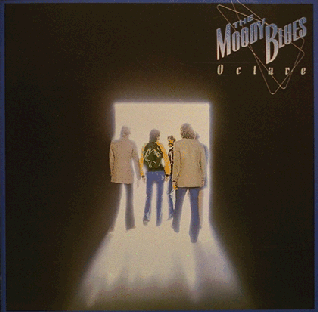
Octave is the ninth album by the Moody Blues, released in 1978, and their first release after a substantial hiatus following the success of the best-selling Seventh Sojourn in 1972. Released after a considerable break, which saw The Moody Blues returning in an era of punk music and disco, Octave produced a reduced commercial outcome for the band, but reached No. 6 in the United Kingdom and went platinum in the United States, where the album reached No. 13. The album produced the hit single "Steppin' in a Slide Zone", which hit No. 39 in the US, in addition to "Driftwood". The album's title is a musical pun: it references both the notion of an octave; and as a word derived from the Latin octavus it refers to this being the eighth album by this line-up of the Moody Blues.

"Nights in White Satin" is a song by English rock band the Moody Blues, written by Justin Hayward. It was first featured as the segment "The Night" on the album Days of Future Passed. When first released as a single in 1967, it reached number 19 on the UK Singles Chart and number 103 in the United States in 1968. It was the first significant chart entry by the band since "Go Now" and its recent lineup change, in which Denny Laine and Clint Warwick had resigned and both Hayward and John Lodge had joined.
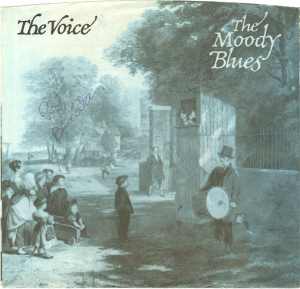
"The Voice" is a song written by Justin Hayward that was first released on the Moody Blues' 1981 album Long Distance Voyager and also as its second single. The song continued the success of previous single "Gemini Dream", becoming a Top 40 hit on the Billboard Hot 100, where it peaked at No. 15 in October 1981. The song had previously topped the Billboard Top Rock Tracks chart for four weeks during June–July 1981. The song also reached No. 9 in Canada.

"Ride My See-Saw" is a 1968 single by the English progressive rock band the Moody Blues. It was written by the band's bassist John Lodge, and was first released on the Moody Blues' 1968 album In Search of the Lost Chord. It was the second of two singles from that album, the other being "Voices in the Sky".

"I'm Just a Singer (In a Rock and Roll Band)" is a 1973 hit single by the English progressive rock band the Moody Blues, written by the band's bassist, John Lodge. It was first released in 1972 as the final track on the album Seventh Sojourn and was later released as a single in 1973, with "For My Lady" as its B-side. It was the second single released from Seventh Sojourn, with the first being "Isn't Life Strange", which was also written by Lodge.

"Tuesday Afternoon" is a 1968 song written by Justin Hayward that was first released by English rock band the Moody Blues on their 1967 album Days of Future Passed and later released as a single.
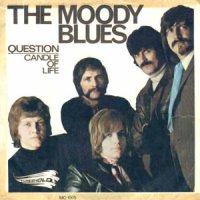
"Question" is a 1970 single by the English progressive rock band the Moody Blues. It was written by guitarist Justin Hayward, who provides lead vocals. "Question" was first released as a single in April 1970 and remains their second highest-charting song in the UK, reaching number two and staying on the chart for 12 weeks. The song reached number 21 on the Billboard Top 40 in the USA. It was later featured as the lead track on the 1970 album A Question of Balance. The single also features the song "Candle of Life" on its B-side, which was from the Moody Blues' previous album To Our Children's Children's Children.
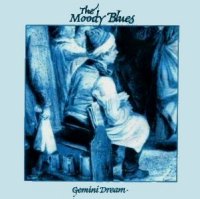
"Gemini Dream" is a song written by Justin Hayward and John Lodge that was released by The Moody Blues on their 1981 album Long Distance Voyager and also as the lead single from the album. It reached number 12 on the US Hot 100, as well as number 1 on the Canada RPM Top 100 Singles chart. It ranked as the 28th biggest Canadian hit of 1981.
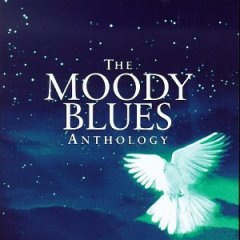
Anthology is a compilation album by the progressive rock band the Moody Blues. It was released in the US on 20 October 1998. It was not released in the UK until 2001 under the title The Collection with different artwork but with the same tracks as the US release.
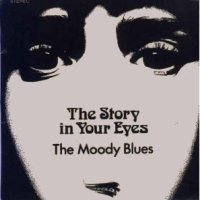
"The Story in Your Eyes" is a 1971 hit single by the English rock band the Moody Blues. Written by the band's guitarist Justin Hayward, it was first released as a single with "My Song" on the B-side, and then on the 1971 album Every Good Boy Deserves Favour shortly after.

"Isn't Life Strange" is a 1972 single by the English progressive rock band the Moody Blues Written by bassist John Lodge, it was the first of two singles released from their 1972 album Seventh Sojourn, with the other being "I'm Just a Singer ", also written by Lodge.

"Steppin' in a Slide Zone" is a 1978 single by the English progressive rock band the Moody Blues. It was the first single the Moody Blues had released in five years, after the band's temporary hiatus. It was written by bassist John Lodge, and was released a month later on the album Octave. The song peaked at number 39 on the US Billboard Hot 100 and number 41 in Canada.

"Driftwood" is a 1978 single by the English progressive rock band the Moody Blues. It was the second single released from the album Octave, after "Steppin' in a Slide Zone". Written by Justin Hayward, "Driftwood" is a slow love ballad, in a similar manner to "Nights in White Satin" and "Never Comes the Day."
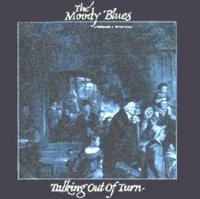
"Talking Out of Turn" is a 1981 single written by John Lodge and first released by the Moody Blues on their 1981 album Long Distance Voyager. It was also released as the third single from the album in November 1981 with "Veteran Cosmic Rocker" on the B-side.

Michael Thomas Pinder was an English rock musician. He was a founding member and the original keyboard player of the rock group the Moody Blues. He left the group following the recording of the band's ninth album Octave in 1978. Pinder was renowned for his technological contributions to rock music, most notably in the development and emergence of the Mellotron in 1960s rock music. In 2018, he was inducted into the Rock and Roll Hall of Fame as a member of the Moody Blues. He was the last surviving member of the group's original lineup.
"A Simple Game" is a 1968 song by the progressive rock band the Moody Blues. Written and sung by Mike Pinder, it was released as a non-album B-side to "Ride My See-Saw", a track from the album In Search of the Lost Chord. The song was produced by Tony Clarke and arranged by Arthur Greenslade. The track was included in the band's 1974 compilation, This Is The Moody Blues, remixed and with an earlier fade than on the single. It was also included, with its original mix and length, in the 1987 compilation Prelude.



















